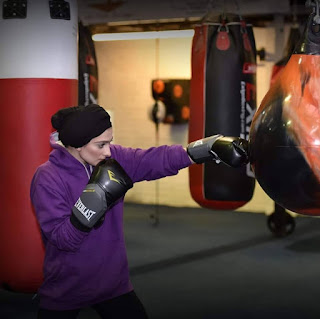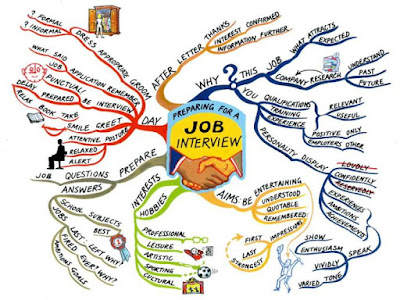Neuro Note 3
"Disabled But Not Really.."
Wesley HamiltonQueer Eye season 4 - episode 2
 |
| Retrieved from disabledbutnotreally.org |
Wesley grew up in the streets of the east side of Kansas City, surrounded by drugs and gangs. He lived his life in a way that was reckless and irresponsible, but he knew nothing different and figured he was going to die soon anyways or end up in jail. Wesley spoke on the fact that after he was shot and was lying on the ground he thought “at least I made it this far”. That was his mentality before and a short time after his injury. It wasn’t until Wesley was put into a situation where he had to change for him and for his daughter that he realized, there is more out there, and he is not confined to his past (or his chair). Wesley is 30 years old and is from Kansas City, Missouri. He is a community activist and started the non-profit foundation called “Disabled But Not Really” that focuses on fitness and nutrition for people with disabilities, “providing equal access to the underserves disabled community; through programs that focus on fitness, wellness, and mental health.” (disabledbutnotreally.org). He is a single father to a 10-year-old daughter, and he suffered a spinal cord injury from a gunshot wound that left him paralyzed from the waist down. Wesley was bedridden for 2 years after his accident and his mother had to lift him out of bed multiple times a day to prevent pressure sores, especially the ischial tuberosity and the heels like we have learned in class, and also to bathe and groom him. Wesley’s mom Dawn nominated him for the show because he never asks for help from anyone, but he really does want to change and has made amazing strides in doing so.
The Fab 5 consists of five gay men who encompass 5 different aspects of someone’s everyday life: food, grooming, fashion, culture and home decoration [and modification in this case. They went into Wesley’s house and life to make changes in order for him to live as independently as possible. The first thing they noticed is that his house is very tidy because if there was stuff on the floor, he wouldn’t be able to get around in his wheelchair. His house is not accessible for him, the ramp outside his house is not properly made including the landing outside of his front door is not accessible for him to do a complete 360 which we learned in biomechanics is needed out in the community for mobility. Inside his home, Wesley uses a reacher to grab shirts and things out of his closet, but things still normally fall down. He has burnt himself on his stove because it is up too high, and he has to use a kitchen utensil to push over the knob to turn the burners/stove on and off. His bathroom is not big enough for him to move freely in his wheelchair so he has to back into the bathroom and not able to properly groom himself because he can’t even see himself in the mirror. Wesley’s mother comes over and does the laundry for him because the washer and dryer are in the basement. Things in his house make him struggle more than he needs to and with what we have learned with energy conservation, Wesley could be putting that extra effort into socializing, spending time with his daughter or doing other things that are meaningful to him.
 |
| Retrieved from disabledbutnotreally.org |
The end result of Wesley’s transformation was amazing. His home is now more accessible for him and his daughter, the countertops in the kitchen are lower for him to reach, his dining room table is at the exact height needed for him to roll under it perfectly and share a meal with his daughter. His laundry is on the first floor now and they are built-in underneath a countertop, so he is able to streamline the process and conserve energy. His bathroom mirror is tilted down so he can see himself which aids in better grooming and I also think an increase in the potential for higher self-esteem. His closet and bedroom are roomy-er and he is able to navigate it in his chair and also possibly bringing home a partner in the future which could lead to Wesley becoming intimate again with someone, leading to overall satisfaction in life.
Something the show made me become very aware of was why Wesley was not a fan of jackets. It had never dawned on me that it is because they are restrictive for his lifestyle and his form of mobility. The jacket gets caught in the wheels and the sleeves will get filthy on the sides because of the wheels getting dirty or wet when it rains. Something as small and as simple as modified sleeves on a jacket could make all the difference and it boils down to function and comfort as well. Especially if someone lives in a very rainy or cold climate. Wesley also spoke about how in the grocery store, literally half of the store is not accessible to him because of how high the shelves are so he is only able to cook and prepare meals with stuff on the bottom of the shelf. To have your life be dictated so heavily on just the height of something is so frustrating and I think OT plays such an integral part in teaching people that there are other ways, it may not be ideal, but going to Walmart may not be an option anymore. There are other options though like online grocery delivery or even the Click-List service that Kroger offers could be a good compromise so that he is able to prepare a wider variety of foods and can explore cooking more which he shared he has interest in and even bringing in his daughter into the kitchen with him as a bonding activity but also as extra help.
Queer Eye is one of my favorite shows, to begin with but to see disabilities being showcased in such a raw and poignant manner made my heart sing. It highlighted the everyday struggles of someone not only with a spinal cord injury but just a disability in general. It also shed light on an amazing non-profit that is helping individuals lead healthier lives which we have learned helps with the overall quality of life.
Until next time,
Sam The Student
References:
Collins, D. (2019). Disabled but not really [Television series episode]. Scout Productions, Queer Eye. Retrieved from www.netflix.com
Disabled but not really (n.d.). Retrieved from https://disabledbutnotreally.org/


Comments
Post a Comment